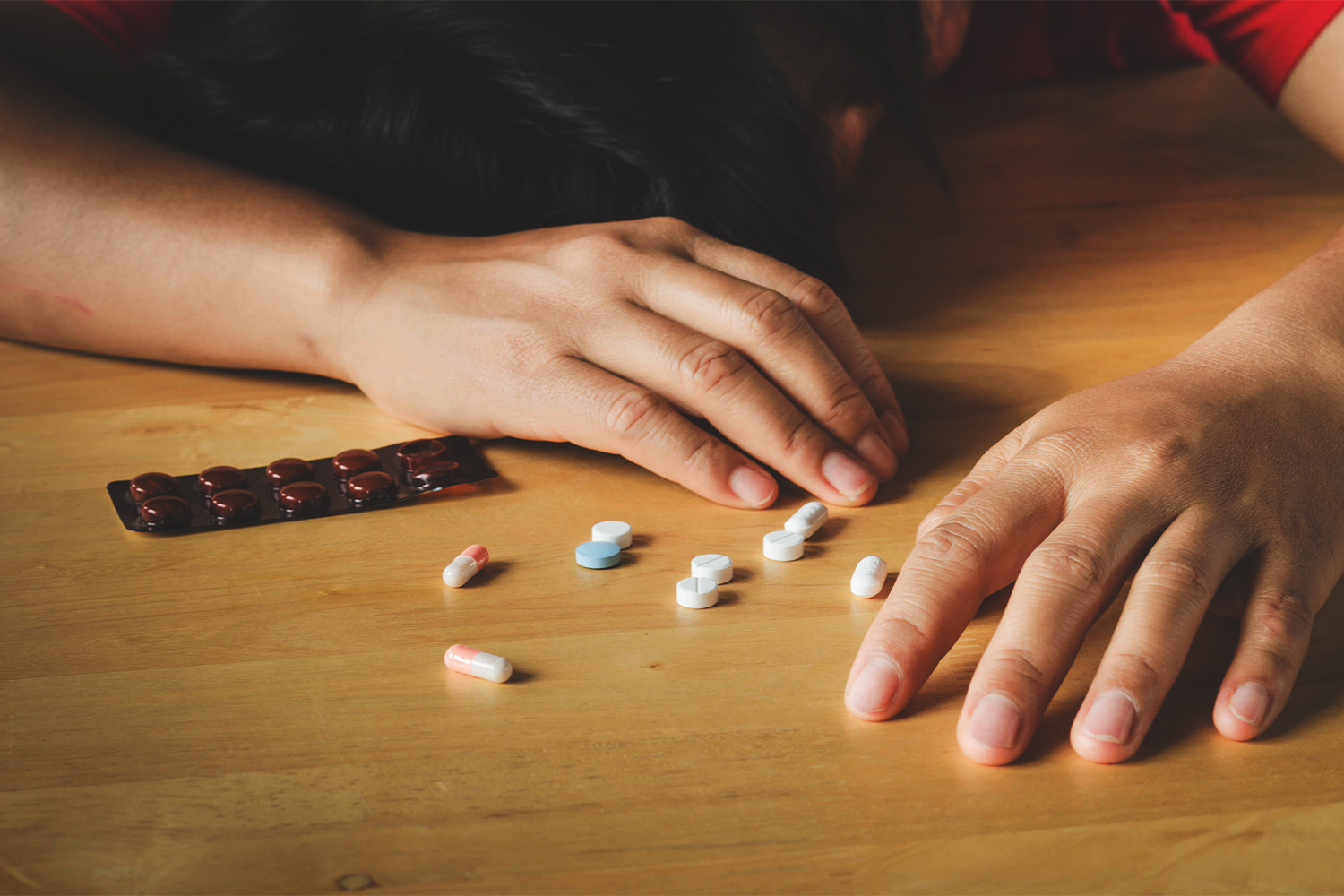There can be a lot of guilt and shame surrounding substance use disorder. No matter how you may feel, the truth is that you are not alone. Rehabilitation treatment facilities exist to provide treatment and support to individuals who want to get better.
Entering into drug rehab is the first step toward addiction recovery, but it’s quite a step to take. There are many different forms of rehab programs that you can enter into, so finding the right fit for your specific needs is critical.
Luckily, at rehab centers such as Soba Recovery, we are here to help find that fit with you so that you can work towards a happier life. Learn more about what to expect from drug rehab and the kinds of treatment programs you or a loved one can encounter on your path to recovery.
What Is Drug Rehab?
Rehab is a substance abuse treatment process that people who suffer from drug or alcohol addiction can undergo to enter recovery and sobriety. This process is different for everyone.
It will encompass various therapies to get to the heart of the addiction and provide the best foundation for full sobriety.
Addiction is not a choice. It takes a severe mental and physical toll on people and affects every facet of their lives. Drug rehab offers assistance with the help of trained medical professionals and addiction specialists to create a treatment plan catered to your specific needs.
At an accreditedresidential treatment rehabilitation facility, you will find yourself supported by people with your best interests in mind.
How Long Does Rehab Take to Complete?
Depending on your substance abuse level, your treatment needs may differ from others. You might benefit from detoxing before entering inpatient or starting with outpatient for five days a week.
This will all be sorted out when you come in and go through an intake form with someone at the rehab facility.
The goal of a rehab center is to help you beat your addiction. However long that may be, addiction treatment programs will work with you to give you the care you need.
What Can I Expect from Drug Rehab?
Entering a drug rehab center is truly different for everyone. It’s normal for an addiction treatment center to seem like a scary place. But, for those ready to take the next step, a rehab center is where you want to be. It’s a safe place for you to sort out your addictive habits.
Most drug rehabs will offer different drug addiction treatment options, including a detoxification process, inpatient drug rehab, outpatient, and even aftercare, like sober living opportunities.
Before you can figure out what treatment you will receive, you have to meet with the medical professionals on staff to help them better understand your needs.
Intake During Check-In
You must first undergo an intake assessment before you check yourself into a drug rehab facility. This helps to determine if you need treatment for alcohol addiction and drug abuse and if you have other mental health issues to address.
During this time, the center will discuss your treatment options. They may advise you to undergo a medical detox or medication-assisted treatment to safely detox from the substance you are using before further treatment.
Depending on your health insurance coverage, out-of-pocket expenses may vary. While completing the intake process, discuss insurance coverage and treatment expenses with your provider. Treatment elements like partial hospitalization and prescription drugs can affect your out-of-pocket costs.
Detoxification
People struggling with alcohol abuse or drug abuse may be dependent on it. To begin the path to recovery, you must quit all substance abuse. Unfortunately for many people, trying to stop using their substance can prove incredibly difficult. The reasons vary.
Some people worry about what their life will be like without the substance, while other people fear potential withdrawal symptoms. These fears and the potential for uncomfortable situations can cause some people to give up on recovery before they ever begin.
At rehab centers like Soba, you can receive 24/7 care as you undergo medical detox. You’ll be in great hands with frequent monitoring and check-ins during this emotional process. You won’t have to do this alone.
Inpatient
An inpatient program comes after the detoxification process. Inpatient programs are monitored 24/7. These intensive programs stick to a schedule to help give you a sense of structure and routine as you adjust to sobriety.
You will have required therapy sessions, individually and as part of a group, with activities and medical treatment available if needed.
If you struggle to take care of yourself, inpatient treatment services might be a great fit. You’ll have the structure you need to get your recovery on firm footing while being surrounded by like-minded individuals.
If you want support and to feel less alone, this is where you can find it.
The focus in inpatient is to help you regain your confidence. Heal your trauma and work on the decisions that led you to addiction in a safe place like Soba.
Inpatient treatment can last for however long you need, with some staying for several weeks before transitioning into other less intense programs. Whatever your journey, you are supported and encouraged to take the time you need to heal and improve.
Outpatient
There are other options for those struggling with addiction who cannot afford to take time off work for weeks or have children and pets that they need to be responsible for, there are other options out there. Just because you can’t drop everything to get help doesn’t mean you don’t deserve it.
Outpatient services are also for people who aren’t ready to return to society after completing inpatient. Outpatient treatment still requires you to commit to attending and participating, but they are more flexible to allow you time back with friends and family and at work.
Dip your toe into the real world while still retrieving consistent treatment.
With outpatient rehab, you might need to come into the treatment center at 9 AM and be part of group therapy for two hours before a break and your individual therapy session. This might happen twice or five times a week, depending on whether you’re in an intensive outpatient program.
Therapy
There are a variety of different types that you could encounter. Depending on your needs, you might want to pursue marriage therapy and counseling, family therapy, trauma therapy, cognitive-behavioral therapy, therapy for other co-occurring disorders, or group therapy.
Therapy is a great way to understand some of the roots of your issues with addiction by working on your mental health, analyzing your behavioral health, and addressing any existing mental health disorders.
It can help you heal and move on so that you can focus on your future. Group therapy is great because it helps you build a community with other people who are going through similar struggles.
Therapy is essential in the recovery journey; you will receive it at all points of your experience with a quality rehab center.
Sober Living
Once you have completed your drug rehab journey, it’s not actually over. Committing to your health, mental well-being, and sobriety is a difficult task. It can feel impossible if you aren’t surrounded by people supporting you.
With support groups and sober living programs, you can continue to be around other sober individuals who can help hold each other accountable as you all work through your addictions.
Aftercare is so important because addiction and substance cravings don’t stop overnight. Some days will feel easier than others. Having a relapse prevention plan in place, and knowing the resources you have at your disposal to help you get through those rough patches, can go a long way in helping you maintain your sobriety.
Finding Help With Soba Recovery Center
We understand that getting help at a drug rehab center can feel overwhelming and intimidating. Here at Soba Recovery Center in San Antonio, Texas, we want to make it as easy as possible for you.
There is no shame in asking for help, especially when the help you are asking for is to fight for a better life. Pick up the phone and give us a call.
The best thing that you can do for yourself is to start the process of getting help. Reach out to a Soba representative if you have questions regarding the services we offer for addiction treatment.
Whether you need to start with detoxification or jump to an outpatient program, we can develop a personalized treatment plan for your substance use. Don’t put it off any longer if you want more structure and assistance.
You could be living your best life sooner than you think.
Source:
Substance Misuse and Substance Use Disorders: Why do they Matter in Healthcare? | NCBI
Pathways to Long-Term Recovery: A Preliminary Investigation | NCBI
Continuing Care Research: What We’ve Learned and Where We’re Going | NCBI






